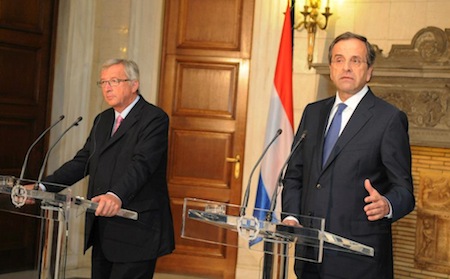Forget UN secretary-general Ban Ki-moon. We’ve got the best parody yet of ‘Gangnam Style.’![]()
As we look to China’s transition to the ‘Fifth Generation’ of leadership next month, which is expected to install Xi Jinping at the head of China’s government, Chinese dissident artist Ai Weiwei has filmed his own plucky parody of South Korean pop start Psy’s hit song ‘Gangnam Style.’
Not typically subtle, Ai appears with a pair of handcuffs, symbolizing his arrest in 2011, his house arrest in Beijing, which was lifted only in June of this year (he’s still forbidden to travel outside of China).
Ai’s become internationally famous — and he’s probably the most infamous opponent of the current Chinese Communist Party not currently in jail in the Middle Kingdom.
For background on ‘K-Pop,’ here’s The New Yorker opus on South Korea’s most successful export of the past decade.

